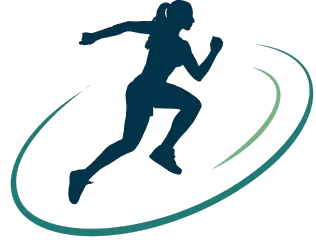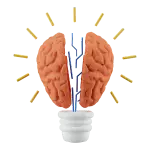Ways To Breaking Through Weight Loss Plateaus
Introduction for Ways to Breaking Through Weight Loss Plateaus
Breaking through weight loss plateaus can be frustrating for individuals who are striving to achieve their weight loss goals. Despite their efforts, they find themselves stuck at a certain weight, unable to progress further. In this article, we will delve into the science behind weight loss plateaus and explore effective strategies for overcoming them. So, if you’re ready to break through this roadblock and continue your fitness journey, let’s dive in.
I. The Science Behind Weight Loss Plateaus
How Weight Loss Plateaus Occur
Weight loss plateaus occur due to a combination of physiological and psychological factors. When you start a weight loss journey, your body undergoes various changes to adapt to the new calorie deficit and increased physical activity. Initially, you may experience significant weight loss as your body burns stored fat. However, over time, your metabolism adjusts to the new conditions, and weight loss becomes more challenging.
To overcome weight loss plateaus, it is crucial to understand these factors. Physiologically, your body may adapt to the reduced calorie intake by slowing down your metabolism and conserving energy. Additionally, hormonal changes, such as decreased levels of leptin (a hormone that regulates appetite), can contribute to increased hunger and decreased energy expenditure.
Psychologically, weight loss plateaus can be demotivating. The initial excitement and rapid progress may fade, leading to frustration and a higher likelihood of giving up. By recognizing the science behind weight loss plateaus, you can develop effective strategies to push through this stage.
II. Evaluating Your Progress and Goals
Assessing Your Weight Loss Journey
To overcome weight loss plateaus, it’s essential to evaluate your current progress and redefine your goals. Take a step back and objectively assess how far you’ve come. Celebrate the progress you’ve made so far, whether it’s inches lost, increased strength, or improved overall fitness.
Setting realistic expectations is crucial during this phase. Remember that weight loss is not linear, and plateaus are a normal part of the process. Instead of solely focusing on the number on the scale, consider other indicators of progress, such as measurements, clothing fit, and how you feel overall.
Tracking your progress can also provide valuable insights. Keep a journal or use a fitness app to monitor your food intake, exercise routines, and any changes in your body. By understanding your patterns and identifying potential areas for improvement, you can better strategize your next steps.
III. Revamping Your Diet and Nutrition
Refining Your Dietary Approach
When facing a weight loss plateau, it’s time to analyze and adjust your current diet plan. Begin by ensuring you’re consuming a balanced diet with a proper macronutrient distribution. Aim for a mix of lean proteins, healthy fats, and complex carbohydrates.
Portion control is another essential aspect to consider. Sometimes, portion sizes can gradually increase without us realizing it, leading to a calorie surplus. Be mindful of the quantities you’re consuming, and consider measuring your portions for a while to regain control.
Mindful eating is a powerful tool in combating weight loss plateaus. Slow down, savor each bite, and listen to your body’s hunger and satiety cues. Avoid distractions while eating, such as watching TV or working on your computer, as this can lead to mindless overeating.
IV. Enhancing Your Workout Routine
Optimizing Your Exercise Regimen
If you’ve hit a weight loss plateau, it’s time to shake up your workout routine. Your body may have adapted to your current exercises, resulting in a decreased calorie burn. Diversifying and intensifying your workouts can help overcome this hurdle.
Incorporating strength training is crucial for breaking through plateaus. Building lean muscle mass increases your resting metabolic rate, meaning you burn more calories even at rest. Additionally, consider incorporating high-intensity interval training (HIIT) to maximize calorie burn and stimulate your metabolism.
Don’t be afraid to try new exercises or activities that challenge your body in different ways. Cross-training, such as incorporating yoga, Pilates, or swimming alongside your regular workouts, can provide the necessary variety to overcome plateaus.
V. Incorporating Effective Strategies
Implementing Plateau-Busting Techniques
When facing a weight loss plateau, implementing certain strategies can kick-start your progress. One such technique is intermittent fasting, where you restrict your eating window to specific hours of the day. This method can help control calorie intake and improve insulin sensitivity.
Carb cycling is another effective strategy. Alternating between high-carb and low-carb days can prevent your body from adapting to a consistently low-carbohydrate intake. On high-carb days, focus on consuming complex carbohydrates from whole grains, fruits, and vegetables.
Metabolic resistance training combines strength training and cardiovascular exercises, creating a challenging workout that boosts your metabolism. This technique involves performing exercises in quick succession with minimal rest, keeping your heart rate elevated throughout.
VI. Managing Stress and Sleep
The Influence of Stress and Sleep on Weight Loss
Stress and inadequate sleep can significantly impact your weight loss progress. When you’re stressed, your body releases cortisol, a hormone that can promote weight gain, particularly in the abdominal area. Furthermore, lack of sleep disrupts your hunger-regulating hormones, leading to increased cravings and reduced willpower.
To manage stress, incorporate relaxation techniques into your routine, such as deep breathing exercises, meditation, or engaging in hobbies that bring you joy. Prioritize sleep by establishing a consistent sleep schedule, creating a relaxing bedtime routine, and optimizing your sleep environment.
VII. Seeking Professional Guidance
When to Consult a Weight Loss Professional
If you’re struggling to overcome a weight loss plateau, seeking assistance from a healthcare professional or a registered dietitian can be highly beneficial. These experts can provide personalized advice tailored to your specific needs and help you navigate through this challenging phase. They can evaluate your current approach, suggest modifications, and ensure you’re following a safe and sustainable plan.
Remember, everyone’s weight loss journey is unique, and professional guidance can provide invaluable support and expertise.
VIII. Staying Motivated and Overcoming Setbacks
Maintaining Your Weight Loss Journey
Staying motivated during weight loss plateaus can be tough, but it’s essential to persevere. Surround yourself with a supportive network of friends and family who understand your goals and cheer you on. Consider joining online communities or finding a workout buddy to keep you accountable and motivated.
Self-care plays a significant role in maintaining motivation and bouncing back from setbacks. Take time for activities that bring you joy and help you relax. Celebrate non-scale victories, such as increased energy levels, improved fitness performance, or better mental well-being.
Remember that setbacks are a natural part of the journey. If you experience a temporary lapse in progress, don’t be too hard on yourself. Reflect on what caused the setback, learn from it, and get back on track with renewed determination.
Conclusion
In conclusion, weight loss plateaus can be challenging, but they are not insurmountable. By understanding the science behind weight loss plateaus and implementing effective strategies, you can break through this roadblock and continue on your fitness journey. Remember to assess your progress and goals, refine your diet and nutrition, enhance your workout routine, incorporate plateau-busting techniques, manage stress and sleep, seek professional guidance when needed, and stay motivated while overcoming setbacks.
Breaking through weight loss plateaus requires persistence, adaptability, and self-care. Embrace the process, celebrate your achievements, and keep moving forward. Your success is within reach!














